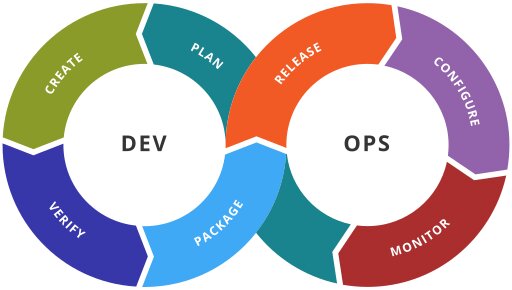DevOps: What is it and why is it important?
A recently-developed term, DevOps has taken the IT industry by storm and a lot of organisations have been benefited from this phenomenon. Let us look at what DevOps is and why it has become such a prominent part of the IT industry. In this article, we will cover everything about DevOps, its origin, benefits and the lifecycle.
What is DevOps?
DevOps in simple terms refers to the set of processes or activities that bring development and operations teams together for a holistic software development approach. According to Wikipedia, “DevOps (a combination of “development” and “operations”) is a software engineering practice that aims at unifying software development (Dev) and software operation (Ops).”
Best-suited DevOps courses for you
Learn DevOps with these high-rated online courses
Origin of DevOps
The term DevOps was first mentioned in 2008 at an Agile conference in Toronto and was introduced by Andrew Shafer and Patrick Debois in their talk on “Agile Infrastructure”. The proper promotion of DevOps has been started from 2009 through a series of “DevOps days”.
The diagram on the right shows DevOps as the intersection of development, quality assurance and operations:
The main aim of DevOps is to break down the functional barriers that usually exist between the development and operations teams. It allows the teams to work together on a common set of objectives that will provide value to the business as a whole.
There has always been a lack of working partnership between the development and operations teams; either due to the reason that in most cases they work independently out of different locations or because their working patterns are a bit different. DevOps tries to fix those issues by creating a common structure and technical outlook for both.
DevOps Lifecycle
The DevOps lifecycle can be described by its logo, the symbol infinity which perfectly makes sense of the processes associated with it. As DevOps is intended to be cross-functional, there are multiple tools instead of a single tool as shown below:
Source: winwire.com
What are the benefits of DevOps?
In DevOps, instead of different teams for development and operations, there is a single team of cross-functional members which includes developers, QAs, operations engineers, business analysts, etc. Thus it offers a lot of advantages in various areas as mentioned below :
Technical Benefits
- There is a continuous process in the software delivery as the DevOps process is built in such a way that there is no waiting time for code deployment. Hence, the developer focuses on building the current code.
- Problems are resolved quicker in DevOps. As DevOps is built on Agile programming methodology, the bigger codebases are divided into smaller ones which lead to the easier detection of defects.
- There is less complexity to manage in DevOps as there is constant collaboration among the members.
Also Read>> Top Devops Interview Questions with Answers
Business Benefits
- Due to improved collaboration and continuous delivery process, the overall delivery timeframe gets shortened. Hence, features are delivered more quickly.
- As problems are managed quickly, there is space for more innovation in DevOps.
- In every process, there is a likelihood of failure. However, in DevOps, the recovery time is relatively reduced as compared to traditional IT system, leading to a stable operating environment.
Cultural Benefits
- As DevOps leads to better collaboration among the teams, it leads to better productive and happy teams.
- DevOps leads to better cross-functional communication and thus, higher employee engagement.
Also Read>> Top Python Interview Questions with Answers
Conclusion
Businesses need not only to improve on the technological aspect but also the approach towards IT services. DevOps is a concept that will help IT organisations to realise that approach and build better delivery models which will lead to long-term success.
Shiksha Online offers top quality professional training modules on DevOps which will help candidates to understand the nuances and become an expert in the techniques associated with it.
This is a collection of insightful articles from domain experts in the fields of Cloud Computing, DevOps, AWS, Data Science, Machine Learning, AI, and Natural Language Processing. The range of topics caters to upski... Read Full Bio



